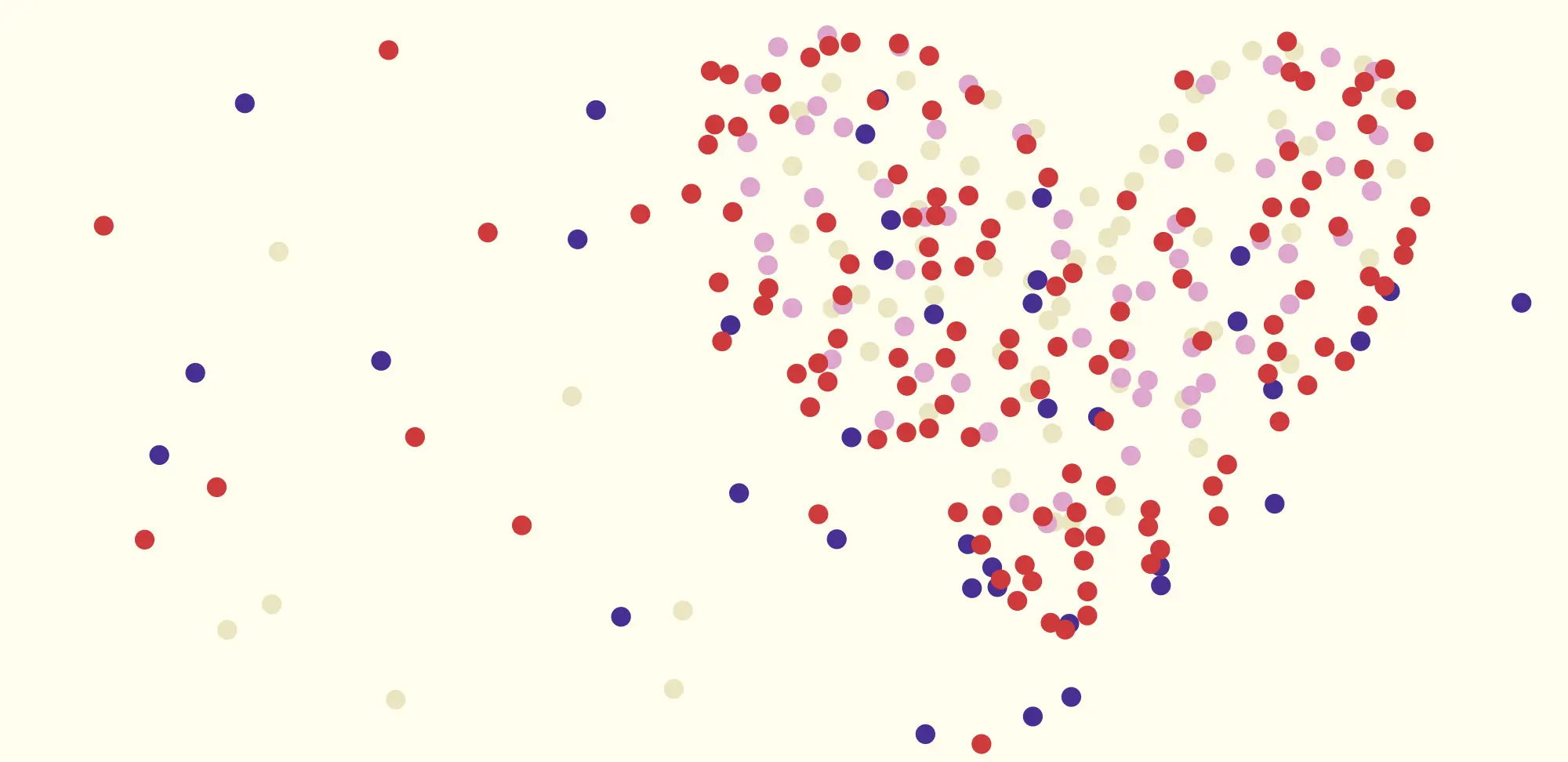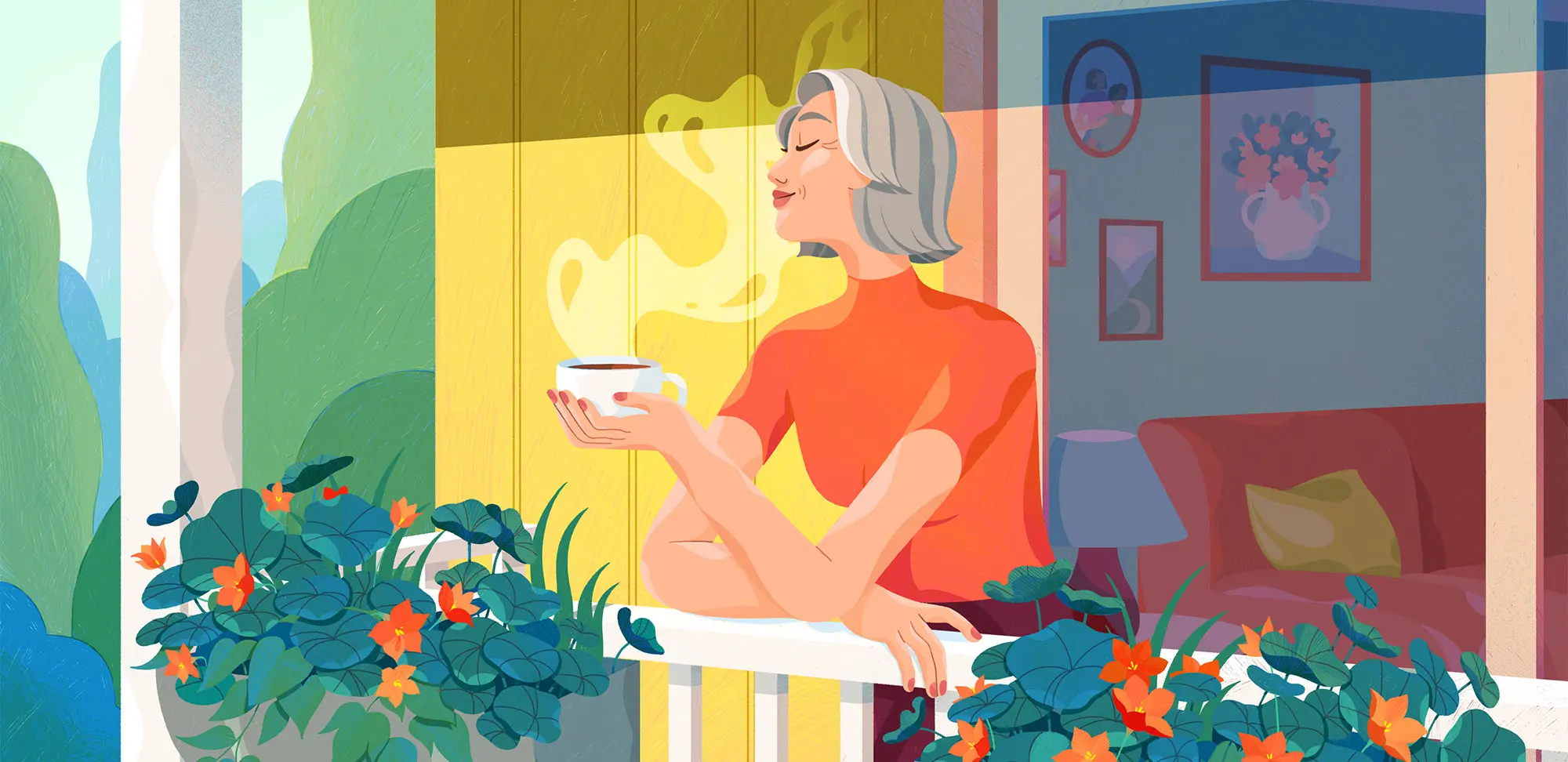Old: advanced in years or age; showing the characteristics of age. —Merriam-Webster
It’s evident in the massive “anti-aging” skin-care-product industry, created by brands that almost 100 years ago started sending messages about the “dreaded signs of facial aging” and “dull, sallow colour.” And it’s clear in the “OK Boomer” catchphrase, a verbal eyeroll dismissing people of a certain generation as out of date.
The message is unmistakable: Getting and being old, and all the stereotypes that come with that word, is bad. Plain and simple.
Truth is, people aren’t a carton of milk or loaf of bread. We don’t have a best-before date. And there’s pretty much nothing we can’t be or do, at any age, should we choose to.
What does “old” even mean nowadays? And why does it have to mean anything at all? “When people ask what is ‘old,’ there’s no definitive age,” says Laura Tamblyn Watts, CEO of CanAge, a seniors’ advocacy organization. “What infuriates me is that we pick a number, say 65, and everyone from then is ‘old’ or ‘older.’ We have socially constructed ideas of how things should be.”
Historically, old age was tied to ability and social roles. People were deemed old based on their physical decline or if their working life was over. But lifespans have increased, and health status has improved with medical advances. Retirement doesn’t look like it did in decades past, so that’s no longer a clear marker.
“Stereotypes are changing,” says Nancy Worth, an economic geographer at the University of Waterloo.
Baby boomers have initiated significant social change in North America for most of their lives. Now, they’re challenging the cultural perceptions of old and what it means. Take Robin Todd. The retired English and creative writing teacher, and a member of District 31 Wellington, cherished her bike when growing up in Guelph. “I loved the freedom to be able to get anywhere, to roam,” Todd says.
She still does. In 2021, Todd rode her Santa Cruz Stigmata gravel bike from Vancouver to Cape Breton, cycling 6,777 kilometres in 41 days. And in 2023, she rode 5,000 kilometres across the northern United States, from Washington to Michigan.
“I want to do this as long as I can,” Todd says. She cites a favourite quote from George Bernard Shaw: “We don’t stop playing because we grow old; we grow old because we stop playing.”
“Have playfulness, and remain joyful and optimistic,” Todd says. “I want to continue to be that 12-year-old kid.”

To Todd, aging is a state of mind, and science backs her up. We have several ages at once. There’s the age that keeps score of how long we’ve lived. We also have biological, physiological and functional ages, which refer to our health status and what’s going on with our cells and tissues. We have a social age, too, which is how we meet the norms and expectations associated with a certain maturity.
And perhaps the most important age of all: our subjective age. Chronological age is what we are; our subjective age is how we feel. In one study of almost 1,500 adults published in the Psychonomic Bulletin & Review, those over 40, on average, perceive themselves to be 20 per cent younger than their actual age. “There’s a dissonance between your self-perception and the number you see on your birth certificate. It seems like we age slower in our heads,” says Marfy Abousifein, president of the Canadian Association on Gerontology’s student club at McMaster University and a health sciences student there.
Feeling younger has benefits. An article in Psychological Science says subjective age is a biopsychosocial marker of aging. Having a lower subjective age predicts other major outcomes, like better physical and cognitive health, higher well-being, greater stress resilience and lower mortality hazards. Feeling older than you are predicts the opposite.
As people get older, they often focus on lowering weight, blood pressure and cholesterol. They’re all important for your health, of course, but so is lowering your subjective age. This isn’t about denying your true age. It’s about feeling young in spirit. There’s no magic pill for that, but research tells us there are ways to get there: Have a sense of purpose, maintain broad social networks, keep connected with your community, challenge yourself and stay inquisitive.
So what’s “old”? In one sense, it’s typically older than you are now.
In 2024, the journal Psychology and Aging published the results of a longitudinal study. Over 25 years, when they were between ages 40 and 100, participants were asked, “At what age would you describe someone as old?”
As people aged, the answer was always older. So a 65-year-old might say 74, while a 74-year-old would say 78. Overall, the perceived onset of old age rose by a year for every four to five years of actual aging.
In other surveys, turning 65, 75 and 85 have all been cited as indicators of old age. But so have other signs that don’t hinge on years. For some it’s grey hair. For others, it’s when you can’t drive. Some say it’s when you can’t live independently. And for still others, it’s milestones like having grandchildren or retiring. Would that make a 46-year-old grandmother or a 53-year-old retiree old?
Looking your age – or trying not to – is big business. The anti-aging market, including everything from skin-care products and hair colouring to supplements and cosmetic surgery, is valued at about US$63 billion globally and projected to reach almost $107 billion by the end of the decade.
True, part of this is about boosting confidence, the connection between looking good and feeling good. Still, “we’re taught that you can’t be happy if you have two wrinkles,” Abousifein says.
Maybe perceptions of aging are shifting, but that hasn’t stopped the messages that young is better than old. It can be tempting to run away from your age. But recognize, too, that it’s not the only thing that defines you. You can be young at heart or old before your time at any age.
In 1965, The Rolling Stones released “(I Can’t Get No) Satisfaction.” Mick Jagger and Keith Richards were 21 at the time. A few months later, The Who released “My Generation,” with a famously defiant line from 20-year-old songwriter Pete Townshend: “Hope I die before I get old.”
In June 1975, on the cusp of turning 32, Jagger told a magazine that “I’d rather be dead than sing ‘Satisfaction’ when I’m 45.” Fast forward to 2024, and he was still singing it on tour at age 81. That same year, The Who, with 79-year-old Townshend and 80-year-old Roger Daltrey, was also onstage performing “My Generation.”
Todd wonders if “Hope I die before I get old” is more about a mindset than an age. You’re not old when you hit a certain birthday, she suggests, but when you’re afraid to try new things anymore. “I don’t want to get to that place,” she says.
The saying that “age is just a number” usually refers to the idea that people have no boundaries. That’s true. But age literally is just a number, a data point like height or weight. These don’t say anything about a person’s values, likes, dislikes or hopes. They’re quantitative measures. We get qualitative by calling someone “tall” or “short,” “heavy” or “thin,” “young” or “old.” But compared to what?
“Don’t buy into expectations and stereotypes,” Todd says.
She finds a sense of contentment and achievement on her bike. Anyone, at any age, can too by going after whatever interests them. Just stay engaged and curious. Like Todd, who every week tries to find a new route or a new place to explore. “I love finding roads I haven’t been on.”










